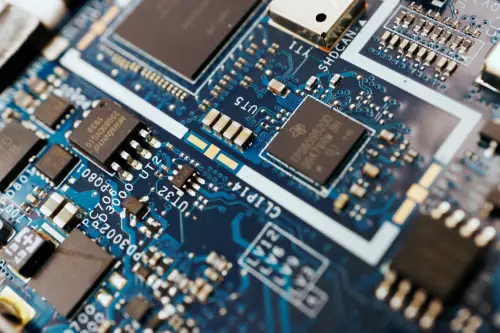The White House is in the process of seeking to renegotiate U.S. CHIPS and Science Act awards, potentially causing delays to upcoming semiconductor disbursements, according to two sources familiar with the matter. The individuals, alongside a third source, indicated that the new administration is currently reviewing the projects funded by the 2022 law, which provides $39 billion in subsidies.
Plans from Washington involve renegotiating certain deals by reassessing and adjusting current requirements. The specific impact of these potential changes on already finalized agreements remains unclear, and any actions taken so far are not known.
Acknowledging these developments, GlobalWafers spokesperson Leah Peng stated, "The CHIPS Program Office has informed us that certain conditions not aligned with President (Donald) Trump's executive orders and policies are under review for all CHIPS Direct Funding Agreements."
Despite not receiving direct notification from Washington regarding alterations to their awards, Taiwan's GlobalWafers holds U.S. government grants for projects in Texas and Missouri. The company expects subsidies upon reaching specific milestones in 2025.
Each recipient of the awards has unique terms and milestones outlined in their agreements.
Reports from four sources reveal that the White House is expressing concerns about the terms supporting the $39 billion Chips and Science Act industry subsidies. Additional clauses, such as requirements for using unionized labor in factory construction and providing affordable childcare for workers, have been inserted into contracts by President Joe Biden’s administration.
The White House and the U.S. Department of Commerce are yet to respond to requests for comment.
The Semiconductor Industry Association, representing chip manufacturers, is evaluating ways to enhance the program. David Isaacs, vice president of government affairs for the association, emphasized the importance of ensuring the program's continuity and expressed readiness to collaborate on streamlining requirements under the new administration.
The White House is reportedly frustrated by companies that received CHIPS Act subsidies and subsequently announced substantial expansion plans, including in China, which the law permits. Intel, for instance, revealed a significant investment in a Chinese facility following the CHIPS Act award, prompting scrutiny.
Notable recipients of CHIPS Act funding, like Intel, TSMC, Samsung Electronics, and SK Hynix, all maintain major manufacturing facilities in China. While Intel confirmed receiving $2.2 billion in CHIPS Act funding, it refrained from elaborating further.
TSMC confirmed receiving $1.5 billion in CHIPS Act funds according to the initial terms of its agreement, and Samsung, SK Hynix, and Hemlock Semiconductor chose not to comment. Bosch directed inquiries to the Chips Office. Micron and GlobalFoundries did not respond to requests for comment.
